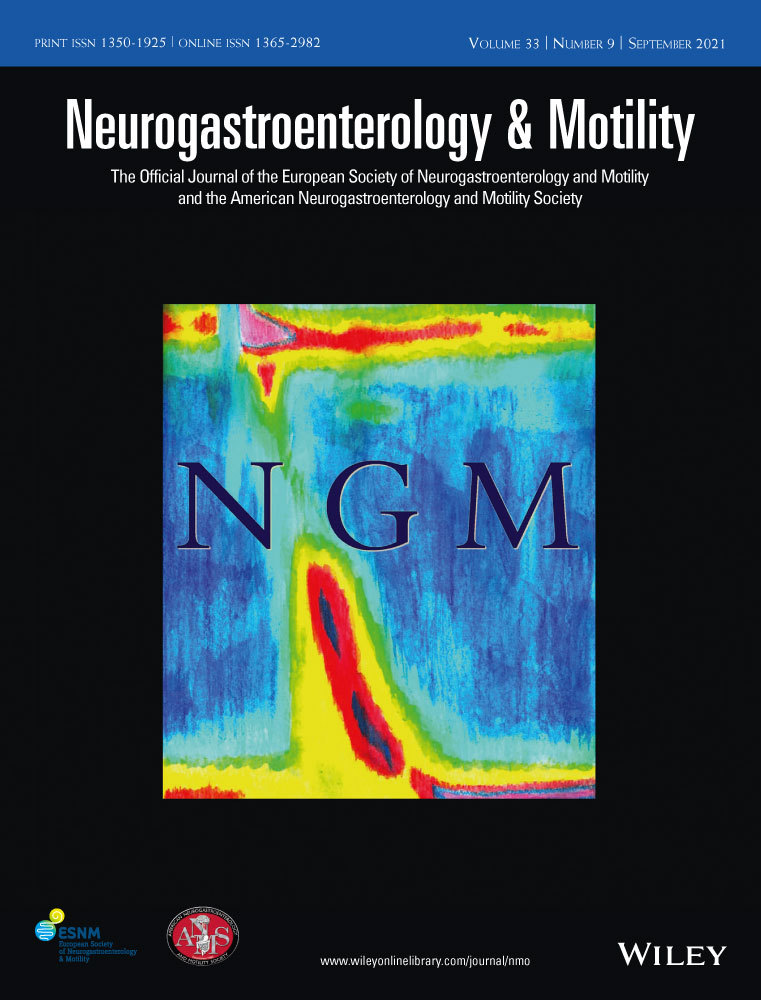Increased visceral sensitivity, elevated anxiety, and depression levels in patients with functional esophageal disorders and non-erosive reflux disease
Abstract
Background
Little is known about possible underlying psychological abnormalities and physiology of reflux hypersensitivity (RH) as defined in the recent Rome IV classification. We aimed to assess markers of psychological comorbidity as well as gastro-esophageal reflux measurements in RH patients compared to controls and also in patients with functional heartburn (FH) and non-erosive reflux disease (NERD) versus controls.
Methods
Data of 304 patients visiting our Functional Diagnostics Centre from 2016 to 2018 were analyzed. We focused on a psychological assessment using validated questionnaires (visceral sensitivity index; VSI, hospital anxiety and depression score; HADS) as well as multichannel intraluminal impedance (MII) and pH-metry data from the diagnostic work-up.
Key Results
We found a decreased VSI of 57.8 ± 15.4 points (pts) among RH patients (n = 45) indicating higher visceral sensitivity compared to 85.7 ± 2.0 pts in the control group (n = 31, P < 0.001). Furthermore, a significant difference in VSI was found between the FH (60.8 ± 23.3 pts, n = 59, P < 0.001) and between the NERD (61.9 ± 20.8 pts, n = 67, P < 0.001) both compared to the control group. The HADS also displayed a significant difference between the RH (11.9 ± 6.0 pts, P < 0.001), FH (11.0 ± 7.4 pts, P < 0.001), respectively, NERD (11.3 ± 8.9 pts, P < 0.001) as compared to the control group (2.0 ± 1.4 pts).
Conclusions and Inferences
Increased sensation to visceral stimuli as well as anxiety and depression appears to play an important role not only in reflux hypersensitivity and functional heartburn as defined by Rome IV but also in NERD. These findings are in line with the disease concept of disorders of gut-brain interaction in which psychological comorbidities and visceral hypersensitivity play a major role.
CONFLICT OF INTEREST
None of the authors report any conflicts of interest concerning the material or methods in this study or the findings and results in this manuscript.
Open Research
DATA AVAILABILITY STATEMENT
Data can be shared and made available upon reasonable request.




